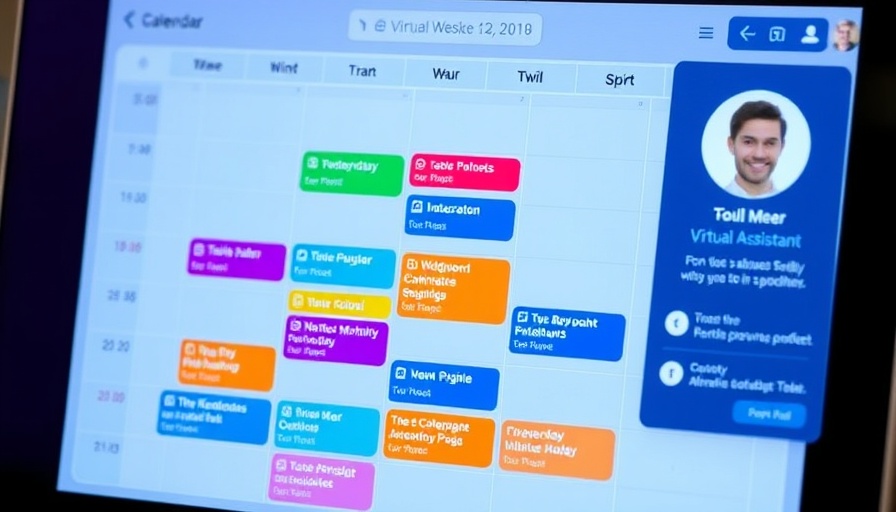
Revolutionizing Scheduling: How Gemini AI Enhances Google Calendar
As technology advances, so too does our interaction with it. The introduction of Gemini AI into Google Calendar represents a pivotal shift in how business professionals manage their time and schedules. With its AI-driven functionalities, Gemini aims to simplify task management, making daily operations smoother for busy individuals.
Unlocking Simple Scheduling Queries
Gemini's integration in Google Calendar allows users to employ natural language prompts to check their schedules or create new events. Instead of sifting through endless entries, one can simply ask, "When is my next meeting?" or "Add a dinner appointment for Tuesday at 7 p.m." This kind of streamlined interaction is particularly valuable for professionals juggling multiple commitments, ensuring nothing falls through the cracks. Try asking, "When is my dog’s birthday?" and watch how easily it retrieves that information.
How to Join the Gemini Experience
Currently in its early rollout phase within Google Workspace Labs, users must enroll to access Gemini’s features. This accessibility is critical—business leaders seeking efficiency should take the time to sign up and explore this advanced AI tool. Once enrolled, users can find the new features under the “Ask Gemini” button in the Calendar web version, opening a world of simplified scheduling.
Manual Input Still Required: Understanding Limitations
While Gemini enhances scheduling efficiency, it does not yet function as a fully autonomous event planner. Users can seamlessly add events, but invitations to attendees must still be managed manually. Though this may be a drawback for some, understanding its current capabilities allows users to leverage Gemini effectively while avoiding frustration.
The Trust Factor: Balancing AI Help and Human Oversight
As with any AI, there’s an inherent need for caution. Montages of AI’s miscommunication often ripple through tech discussions; how {"almost right"} answers can sometimes mislead users. For busy professionals, it is paramount to double-check critical appointments. Although Gemini can handle quick tasks, authenticating details should remain in human hands whenever necessary.
Future Innovations: What Lies Ahead for AI Scheduling
Looking ahead, it’s reasonable to speculate on potential advancements. Could Gemini evolve to handle not just events, but also optimize scheduling by suggesting ideal meeting times based on collective availability? As AI technology progresses, such innovations could deeply shape how we perceive productivity tools.
Conclusion: Embracing the Changes
Overall, the advent of AI like Gemini into Google Calendar presents an important opportunity for professionals. Despite its current limitations, an experiment with this technology could lead to significant time-saving while reducing overhead in manual tasks. Adapting to these changes paves the way for future improvements.
Don’t underestimate the potential of incorporating such AI advancements; embracing tools like Gemini could be a game-changer for your productivity. Sign up for Google Workspace Labs today and explore how Gemini can redefine your scheduling experience!
 Add Row
Add Row  Add
Add 




 Add Row
Add Row  Add
Add 

Write A Comment